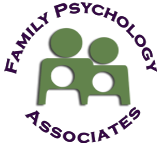Pain Management
By Bud Perschek
In the spring of 2014 while living in Oregon, I was recruited for and asked to participate and help pioneer a new program. At that time, more emphasis was being placed on the negative and long last effects that opiates were having on patients. Physical dependence on opiates affected all who were placed on them. Psychological addiction was also becoming prevalent. Physicians, who had been previously encouraged to prescribe pain medications, were now being instructed wean their patients with chronic pain off of them.
This proved to be a dilemma for those who had been on these medications, sometimes for years. In response it was suggested that much of the perceived physical pain may be able to be addressed with a more natural and effective behavioral approach.
I remember when I went in to discuss the program. I said to them: “But I don’t know anything about Chronic Pain.” They all said “Yes you do.” I know now that the skills they were looking for had nothing to do with medications or traditional medical treatment. It had to do with an approach that would address the additional psychological pain many chronic pain sufferers endure. There was a mandate to get chronic pain sufferers off of opiate medication, but how we going to do it? Given this I agreed to help establish a pain management program that covered the Northwest portion of the state.
We did have an initial model to draw from on the structure of the Program. It would be conducted in groups of 5 to 10 clients. It would run weekly for 10 sessions. I remember that there was a lot of initial tweaking to the program to help make it educational, informative and effective for the participants. My learning curve was never so steep.
I must admit, I had my doubts. Why would I say that? It seemed like an insurmountable task. Deep breathing; restructuring the way you think; laughter; diet; sleep hygiene; body movement? What? Body movement for a person in pain??? No one was more surprised than me when we started getting good results. 95% of the participants reported that the program was “very helpful” to them and I was tickled pink. I don’t think we cured their chronic pain, but it was successful in helping them perceive pain differently.
As the program progressed, we began noticing something else. We had a number of participants who were also in mental health treatment. Their therapists began noticing that their psychological symptoms had improved, and a lot of the improvement was attributed to their participation in the pain clinic program. I guess it makes sense, physical and psychological pain have a lot of the same characteristics. So, we began to expand the program to include and address those with psychological pain.
I really hated to leave the program, but it was time to relocate back to Iowa. After moving I contacted the director of The Wellness Center in Cedar Rapids. I had heard that they were interested in a pain management program. I volunteered my time and we successfully graduated two classes. Then Covid hit.
Since doing the pain management program, I have become a firm believer in a more holistic approach in working with our clients. The pain clinic opened my eyes to explore other more natural ways to address the whole person.
I am trying to incorporate the principles I have acquired from the pain clinic to individual therapy. I do believe, however, that a group model is more conducive primarily because of peer interaction. I hope soon to re-establish a pain management group at Family Psychology Associates in Cedar Rapids. We shall see.
Filed Under: Helpful Articles
